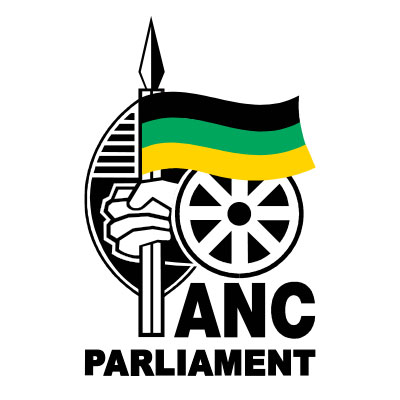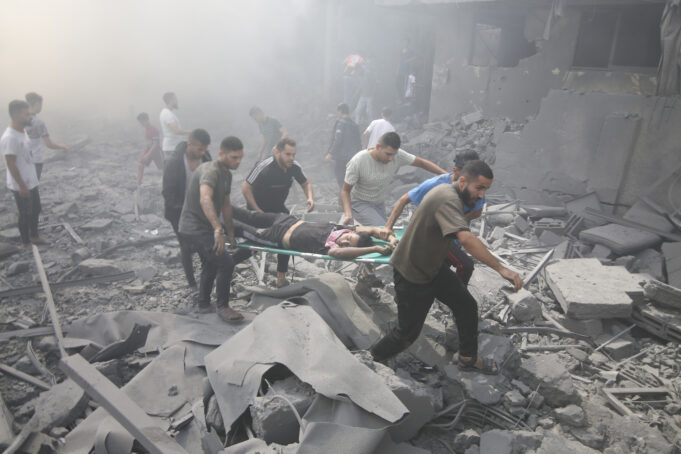For 16 years, Palestinians in Gaza have been trapped in what is effectively an open-air prison in the most densely populated enclave in the world. During these years the Zionist State of Israel has limited Gaza’s 2.3 million population of Palestinians to less than the bare necessities.
As a result of the Oct. 7 invasion of surrounding illegal settler-occupied land by Hamas and the killings of civilians and Israel Defense Force soldiers, Gaza’s civilian population has been totally cut off from all access to water, food, electricity, and medicines for the sick, the elderly and wounded.

Africa’s response to the Hamas attack and subsequent carnage from Israel’s airstrikes includes comments from the South African government. The African National Congress (ANC), characterized the most recent events as a “devastating escalation.”
However, the ANC primarily put the blame on Israel’s doorstep, calling attention to its apartheid-like policies, including “the continued illegal occupation of Palestinian land, continued settlement expansion, desecration of the Al-Aqsa Mosque and Christian holy sites, and ongoing oppression of the Palestinian people,” according to conversation.org.
ANC spokesperson Mahlengi Bhengu-Motsiri said the actions of Palestine Hamas militants were “unsurprising.” She continued, “It can no longer be disputed that South Africa’s apartheid history is occupied Palestine’s reality.”
Israel’s policy of settling its civilians in occupied Palestinian territory and displacing the local population contravenes fundamental rules of international humanitarian law,” Bhengu-Motsiri added.

According to semafor.com, this most recent conflict has elicited a wide range of reactions from African countries. “Leaders are trying to walk the line between strongly-held principles, diplomatic expediency, and empathy in the wake of unfolding carnage in the region,” the website reported.
While Ghana and Kenya issued statements of support for Israel, Nigeria, Uganda and Tanzania, were more guarded in their statements, calling for an end to hostilities and voicing support for dialogue, semafor.com noted in an Oct. 10 article written by Martin K.N. Siele titled, “African countries walk diplomatic line in response to Hamas attack on Israel.”
Across North Africa, support, conflicting responses, and conciliatory action represent the full gamut of the Israel-Hamas war. In Morocco, Algeria, and Tunisia, as across the Arab-Muslim world, reactions to the Hamas offensive against Israel vary according to the country’s ties with Israel. However, simultaneously, authorities must contend with a public opinion that is universally committed to the Palestinian cause.
TheAfricareport.com reported that in Morrocco, where rapprochement with Israel under the aegis of the U.S. has been particularly notable, “King Mohammed VI called for an emergency meeting of the Arab League Council ‘at foreign minister level’ to discuss the war between Israel and Hamas.”
The Moroccan government emphasized that the country “has constantly warned against the repercussions of the political deadlock on peace in the region and against the risks of aggravating the resulting tensions,” noted theafricareport.com. The view of the Moroccan government is that “dialogue and negotiations remain the only way to achieve a comprehensive and lasting solution to the Palestinian question … and the principle of two States, as agreed at (the) international level,” reported the Paris-based English-language quarterly magazine that focuses on African politics and economics.
Dissenting voices from the opposition, the Party for Progress and Socialism (PPS) in the North African country judged “the Zionist entity” as responsible for the military escalation.
According to theafricareport.com, the Algerian Ministry of Foreign Affairs said it was following the Israel-Hamas developments “with deep concern the escalation of barbaric Zionist aggression against the Gaza Strip, which has cost the lives of dozens of innocent children (now in the hundreds) of the Palestinian people, who have fallen as martyrs to the stubbornness of the Zionist occupation in its policy of oppression and persecution imposed on the valiant Palestinian people.”
The country of Djibouti in East Africa is also a member of the Arab League. In its pronouncement, it made it unequivocally clear that it held “the State of Israel responsible for the escalation underway, as a result of its continued aggression and constant violations of the rights of the Palestinian people and their holy places.”
In recent history, Egypt has been known for its negotiations—though less than productive—on behalf of Palestine. While not having officially commented on Gaza, Egypt refuses to allow the displaced Palestinian population to settle in Sinai, because of the incessant bombing by Israel.
According to this writer’s family and friends staying in Egypt, the Israel-Hamas war has also recently put a limit on refugees fleeing the civil war in Sudan.
According to Africannews.com, “The passage of people and goods in and out of Gaza is strictly controlled under a blockade enforced by Egypt and Israel.”
Follow @JehronMuhammad on X, formerly known as Twitter













